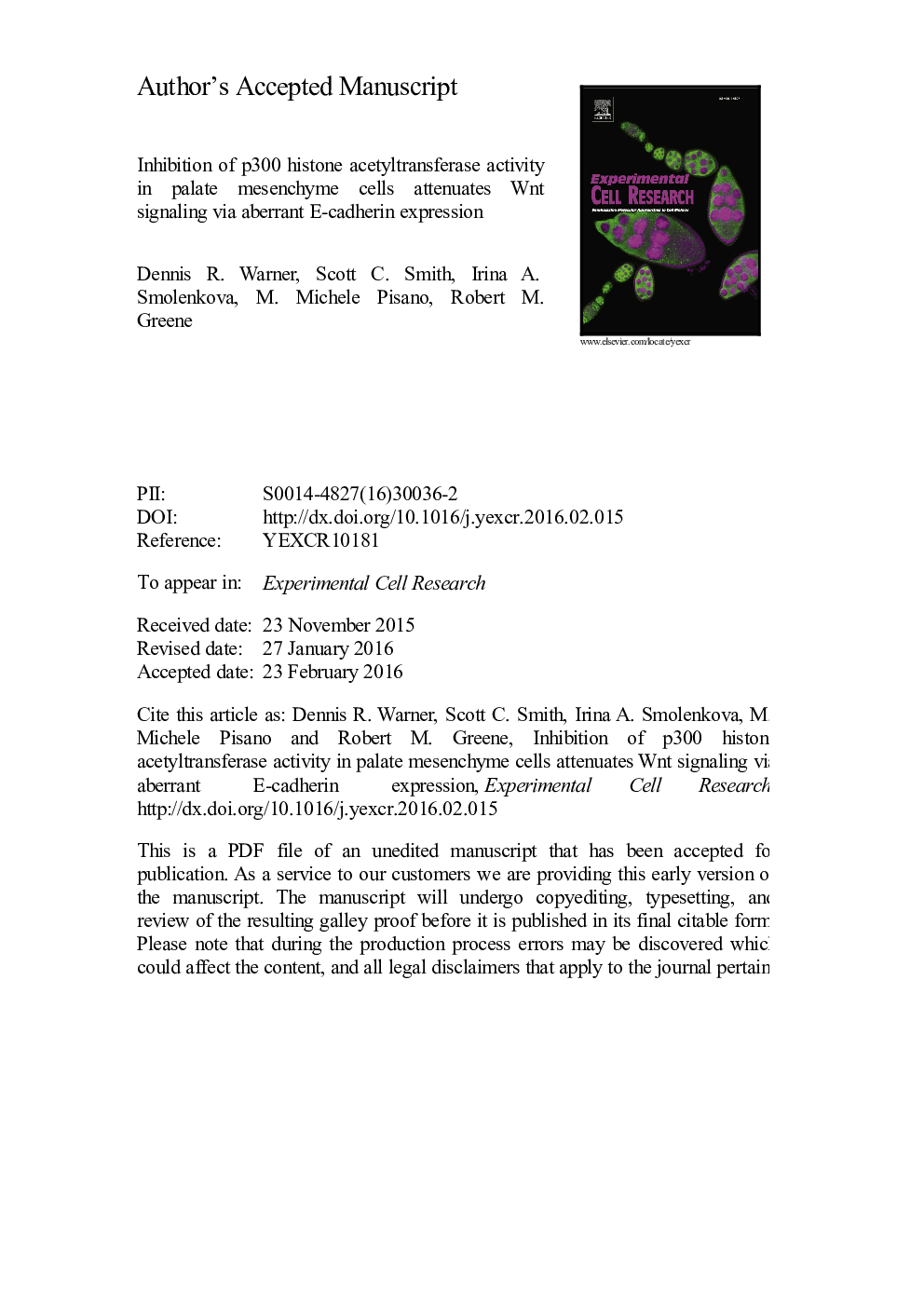| Article ID | Journal | Published Year | Pages | File Type |
|---|---|---|---|---|
| 10903751 | Experimental Cell Research | 2016 | 28 Pages |
Abstract
p300 is a multifunctional transcriptional coactivator that interacts with numerous transcription factors and exhibits protein/histone acetyltransferase activity. Loss of p300 function in humans and in mice leads to craniofacial defects. In this study, we demonstrated that inhibition of p300 histone acetyltransferase activity with the compound, C646, altered the expression of several genes, including Cdh1 (E-cadherin) in mouse maxillary mesenchyme cells, which are the cells that give rise to the secondary palate. The increased expression of plasma membrane-bound E-cadherin was associated with reduced cytosolic β-catenin, that led to attenuated signaling through the canonical Wnt pathway. Furthermore, C646 reduced both cell proliferation and the migratory ability of these cells. These results suggest that p300 histone acetyltransferase activity is critical for Wnt-dependent palate mesenchymal cell proliferation and migration, both processes that play a significant role in morphogenesis of the palate.
Related Topics
Life Sciences
Biochemistry, Genetics and Molecular Biology
Cancer Research
Authors
Dennis R. Warner, Scott C. Smith, Irina A. Smolenkova, M. Michele Pisano, Robert M. Greene,
